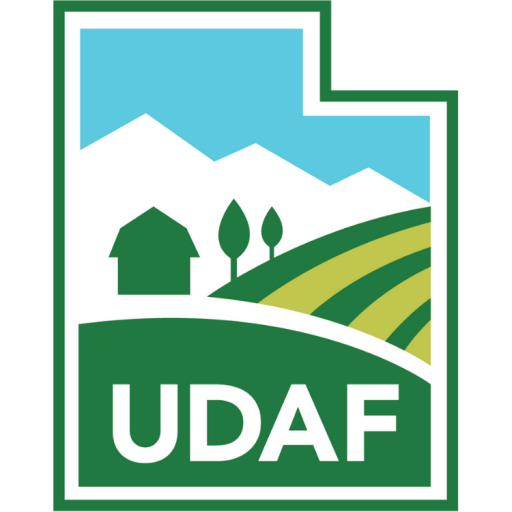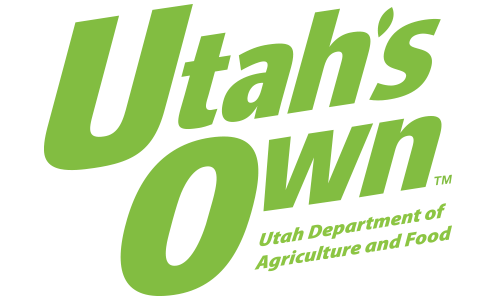Contact email: UDAF-pesticide@utah.gov
The Utah Department of Agriculture and Food (UDAF), Division of Plant Industry, is responsible for the investigation of the misuse of pesticides and the enforcement of state laws regarding pesticide use. Pesticides include but are not limited to chemicals used to safeguard crops as well as those used in and around homes and businesses to kill insects, plant and animal diseases, weeds and other pests. Practically all products that have an EPA registration number on them are a pesticide. The label of almost every pesticide will state under the “Directions for Use” – “It is a violation of Federal law to use this product in any manner inconsistent with its labeling.“
WHO REGULATES THE USE OF PESTICIDES IN UTAH?
UDAF, Pesticide Program , regulates the registration, sale, distribution, use, storage and disposal of pesticides under the authority of the Utah Pesticide Control Act and rules governing pesticides. The Environmental Protection Agency (EPA) has also delegated to UDAF primacy in areas relating to pesticide use and distribution.
LAW AND REGULATIONS:
What is the role of the UDAF Pesticide Program?
The role of the UDAF is to ensure the safe and proper use of pesticides through education and regulation for protection of the people, animals, wildlife and environment of the State of Utah. Enforcement is one of several tools used to promote compliance with laws designed to fulfill this role.
What does a UDAF Pesticide Program Inspector do?
Inspectors will occasionally locate a pesticide applicator using a pesticide. The Inspector will look at the label of the product being applied. An inspector will also look at pesticide records if that is applicable. The Applicator being inspected does not have to be licensed. It will be determined by UDAF if a license is necessary, if the person has the appropriate license (if any) and if there are any violations of laws and rules.
What is the role of the UDAF Pesticide Program Investigator?
The investigator’s job is to maintain an unbiased approach in collecting the facts regarding possible misuse of a pesticide. Investigations are usually the result of a complaint. The investigator will document what happened by conducting interviews, taking photographs, and making onsite assessments. In addition, the investigator will collect statements, application records, and pesticide labels. The investigator may also collect physical evidence such as soil, vegetation, clothing, swabs, water and other samples. In fairness to everyone involved, it is important for individuals to give the investigator complete and accurate accounts of the events that occurred. UDAF personnel will collect all samples and evidence for use in an investigation to maintain a proper chain of custody and ensure that the information obtained can be used, if needed, in a formal hearing.
What gives a UDAF Pesticide Program Investigator, or Inspector, the authority to inspect property and equipment?
The Utah Pesticide Control Act, contained in Section 4-14 of the UTAH CODE, provides that the Commissioner’s designated agent (UDAF Pesticide Inspector/Investigator) may enter any public or private premise at reasonable times for the purpose of:
-
- Observing the use and application of pesticides;
- Inspecting records that are required to be maintained by the law;
- Inspecting equipment, storage facilities, and disposal areas;
- Investigating complaints of injury regarding human health, plant injury or environmental damage;
- Collecting samples of land or pesticides.
- The Utah Pesticide Control Act also allows UDAF to obtain a search warrant in situations where access is denied. Denial of access includes any action that interferes with the normal procedures of a UDAF inspector conducting a routine inspection or investigation.
Will I be kept informed of the progress of the investigation?
As the lead person for the investigation, the UDAF investigator can keep you informed of the progress of the investigation. Certain information may not be released if it is determined that it could interfere with the progress of the investigation or potential enforcement action. Results of the laboratory analysis performed on samples from your property can be shared with you while the investigation is underway. When a decision is made you will be notified whether or not a regulatory action will be taken. Under Government Records Access and Management Act (GRAMA), contained in Section 63-2 of the UTAH CODE, the public has the right to view and obtain case files after a pesticide investigation is completed and closed. UDAF policy requires that all requests for case files be in writing. GRAMA allows the department to charge a fee for the costs involved in responding to a public information request. You may also request a copy of the report, once the investigation has been completed, by sending a written request and filing a GRAMA request form for the investigation report to the Salt Lake City office. Filing via email is recommended at: udaf-pesticide@utah.gov.
What happens when the investigator completes the investigation?
After the investigation is completed, the investigator will submit a report to the Salt Lake City office. The report will be reviewed to determine if there were any violations of the Utah Pesticides Control Act or associated rules and if there is sufficient evidence to support the alleged violation(s). Once it has been determined that a violation has occurred, a decision will be made as to what regulatory action will be taken. The UDAF may take any one of the following actions depending on the severity of the violation and whether the violator has a history of previous violations:
-
- Issue a written notice of violation; Issue a written letter of warning;
- Issue a citation penalty of up to $500;
- Conduct a formal hearing with fines up to $5,000 per count, probation, and corrective action taken;
- Suspend, deny, revoke, or modify the certified applicators license.
What should I do if I think there is a problem with the investigation or I forgot to tell the investigator something?
Call the investigator at his/her UDAF office using the number listed. You may also contact the Pesticide Program Manager at the Salt Lake City office. Please call the investigator first. The investigator needs to know all the facts in order to do a thorough and professional job.
Who has access to information gathered in an investigation?
Under Government Records Access and Management Act (GRAMA), contained in Section 63-2 of the UTAH CODE, the public has the right to view and obtain case files after a pesticide investigation is completed. UDAF policy requires that all requests for case files be in writing. GRAMA allows the department to charge a fee for the costs involved in responding to a public information request. These costs may include document duplication, labor, and mailing costs. UDAF will either approve, partially approve, or deny the request within three business days or notify the applicant that an extension (up to 10 business days) is necessary to process the request.
Will I be compensated for damages?
The Utah Pesticide Control Act contains no provisions for compensation to be made to individuals. Private civil action may be required in some instances to recover damages that have been incurred. If a misapplication or a spill occurs, what should I do? UDAF highly recommends that individuals who believe they have been exposed to pesticides remove all clothing, take a shower and seek medical attention immediately to treat any symptoms of pesticide poisoning. Separately launder contaminated clothes before wearing them. Animals should be removed from a contaminated site or contaminated feed, and given veterinary care immediately.
What are UDAF’s goals for responding to complaints and the completion of a case report?
When you contact UDAF to ask for assistance, an investigator will respond promptly. You will be asked to complete a formal complaint, this may be required in order to initiate an investigation. Each case may vary in the length of time it takes to complete. Variables that affect the duration of an investigation include complicated laboratory analysis, the need for follow-up visits and interviews, and overall investigative caseload. UDAF’s goal is to complete the information gathering, written report, and review in a timely manner. The department remains committed to providing a professional, unbiased, complete, and thorough investigation.
RESTRICTED USE PESTICIDES (RUP):
RUP Dealers License – Required for a business to sell RUP to licensed pesticide applicators.
Dealer sales inspections – Access RUP Product Sales Submission Records here. Dealers must log on with a personal identification number (PIN) provided when they obtain their RUP dealers license.
MARKET INSPECTIONS:
Market inspections are completed to make certain all pesticides sold within the State of Utah are registered to sell in Utah. These reviews are done in many types of retail stores in Utah where any type of pesticide is sold (not just RUP) to help determine if pesticides are registered, in good condition and viable for the consumer to use.
USE INSPECTIONS:
When occasion allows and sometimes by appointment, UDAF Compliance Specialists inspect Pesticide Applicators of all types by observing them during pesticide use and gathering information, basically insuring that the application of pesticide is done correctly.
CAUSE INSPECTIONS:
An UDAF Compliance Specialist is sent to a site to investigate a complaint against an alleged pesticide applicator. This is for all types of applicator, license and not licensed. “It is a violation of Federal Law to use this product in a manner inconsistent with its labeling” is a statement found on many types of pesticide registered with the Environmental Protection Agency (EPA) and is the basis for most complaints. If you have a pesticide complaint, you can make it here (link) or by calling 801-538-7185.
RECORDS INSPECTIONS:
All Commercial Pesticide Applicators are required to keep records on every application they make. Non-Commercial and Private Pesticide applicators are required to keep only records on RUP. These inspections may be done in conjunction with another investigation or as an investigation in itself. RUP dealers’ records are also conducted as described earlier. When requested, applicators must provide UDAF personnel with records.
Here is an example of a record keeping form. You are not required to keep records on this form, but all the information must be on your records.
PESTICIDE INCIDENT COMPLAINT FORM:
Click here to download the Pesticide Incident Complaint Form.





